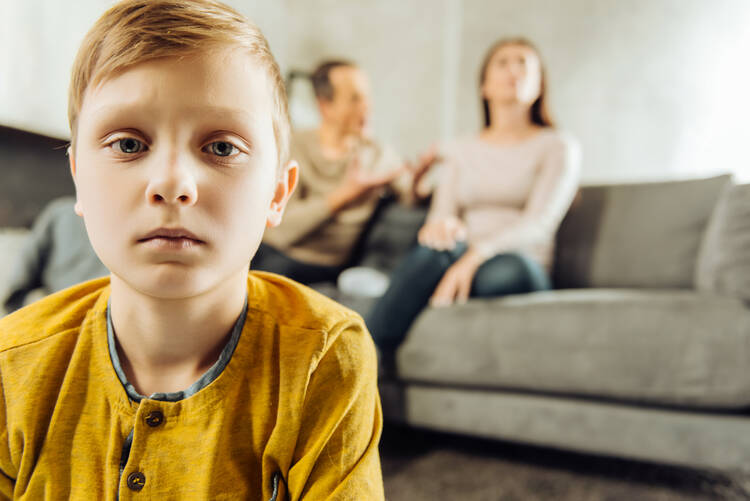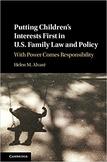Protecting the vulnerable
Helen M. Alvaré makes the case that law and governmental power should be put at the service of the most vulnerable members of our human community. A just society defends and protects its children from harms of all kinds. First in the line of defense of children should be the parents of each child, who have a legal and a natural responsibility to provide for the offspring they have created. However, the law and governmental agencies also play a role in making sure that the next generation has what it needs in order to flourish.
Cambridge University Press. 176p $110
Alvaré argues that both public policy and all three branches of government have not acted justly in protecting the interests of children. This neglect is particularly onerous for the children of the poor and children of color. In promoting what she calls “sexual expressionism,” public policy prioritizes the desires and autonomy of adults over the needs and vulnerability of children. Sexual expressionism reduces even the sexual partner himself, or more commonly herself, to a product in a capitalistic culture of consumption.
In a new book, Helen Alvaré argues that a just society defends and protects its children from harms of all kinds.
In making her argument, Alvaré does not appeal to religious faith or Catholic theology but rather to sociological research that points to the benefits to children of being raised by a married mother and father. As President Barack Obama pointed out, “We know the statistics—that children who grow up without a father are five times more likely to live in poverty and commit crime. They’re nine times more likely to drop out of schools, twenty times more likely to end up in prison. They are more likely to have behavioral problems, or run away from home, or become teenage parents because the father wasn’t in the home. The foundations of our community are weaker because of it.”
Alvaré makes the case that sexual expressionism, at times funded by our own tax dollars, has exacerbated rather than alleviated the problems described by President Obama. She calls for progress in our advocacy for vulnerable children, including our law and public policy.
This article also appeared in print, under the headline “Protecting the vulnerable,” in the May 14, 2018, issue.









